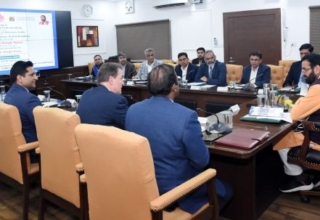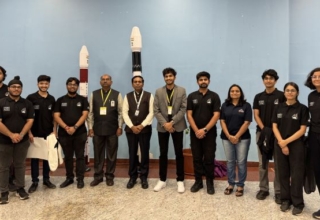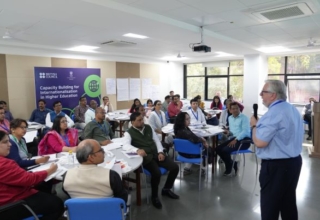
Higher education sector must find innovative solutions with economic sustainability at this hour of crisis say Nitin Gadkari, union minister of Road Transport & Highways and MSME. Addressing the webinar on ‘Impact of Higher Education In The Post COVID Economy’ organized by FICCI in partnership with AIU on May 15, Gadkari said, “Education and research play an important role in helping any sector. Innovation, entrepreneurship, science and technology are all part of knowledge. Conversion of knowledge into wealth is the future of the country.”
The Vision of Prime Minister Modi for a self-reliant India can be achieved through collaborations and partnerships between higher educational institutions, industry, government and society. The MSME industry today contributes about 29 % of GDP. The vision of MSME contribution to 50 % of GDP by 2025 can be achieved through mentorship, capacity building and joint research with our higher educational institutions and universities.
In this context, the Minister also urged the industry to collaborate with educational institutions to support government projects. “We must use the skilled manpower in the universities in governmental and industrial projects. A win-win situation needs to be developed,” said Gadkari while emphasizing on the need for limiting the government interventions in the education sector. “Government should not control but only support the sector,” he added.
Dr Ms Pankaj Mittal, Secretary General, AIU said that the higher education sector contributes significantly to the economy. “With US and Europe most affected by COVID, there may be an influx of students towards India for higher education,” she added.
Prof Anil Sahasrabudhe, Chairman, AICTE highlighted that AICTE is bringing in all the requisite reforms for a seamless and an impactful delivery of technical education in the country at this hour of crisis. He further stressed on the capacity building programs that AICTE is rigorously conducting to onboard faculty for effective digital teaching-learning.
Dr Vidya Yeravdekar, Chairperson-FICCI Higher Education Committee and Pro Chancellor- Symbiosis International University urged various other ministries like MSME to outsource some of their projects to various universities in India. “Universities already have a lot of talent,” she added.
Ronnie Screwvala, Co-Founder and Chairman, Upgrad said, “Online education is no more just about a camera in front of the reader or showing video content. It is about the overall learning experience.”










